Part A Introduction
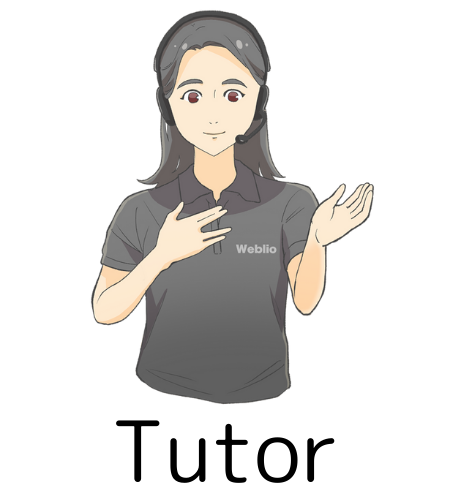
Part A_1 Introduction
Let’s introduce ourselves to each other.
自己紹介をしましょう。
My name is ________. What is your name?
Part A_2 Introduction
I am ________. Nice to meet you.
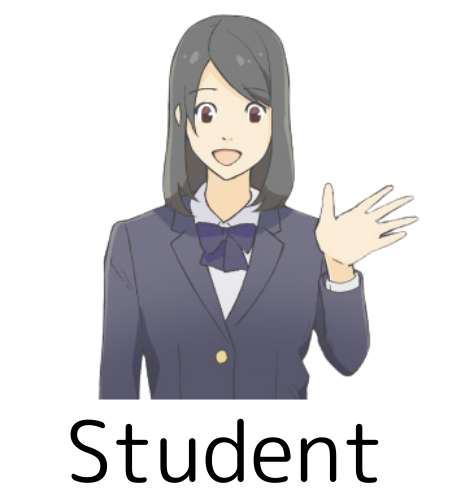
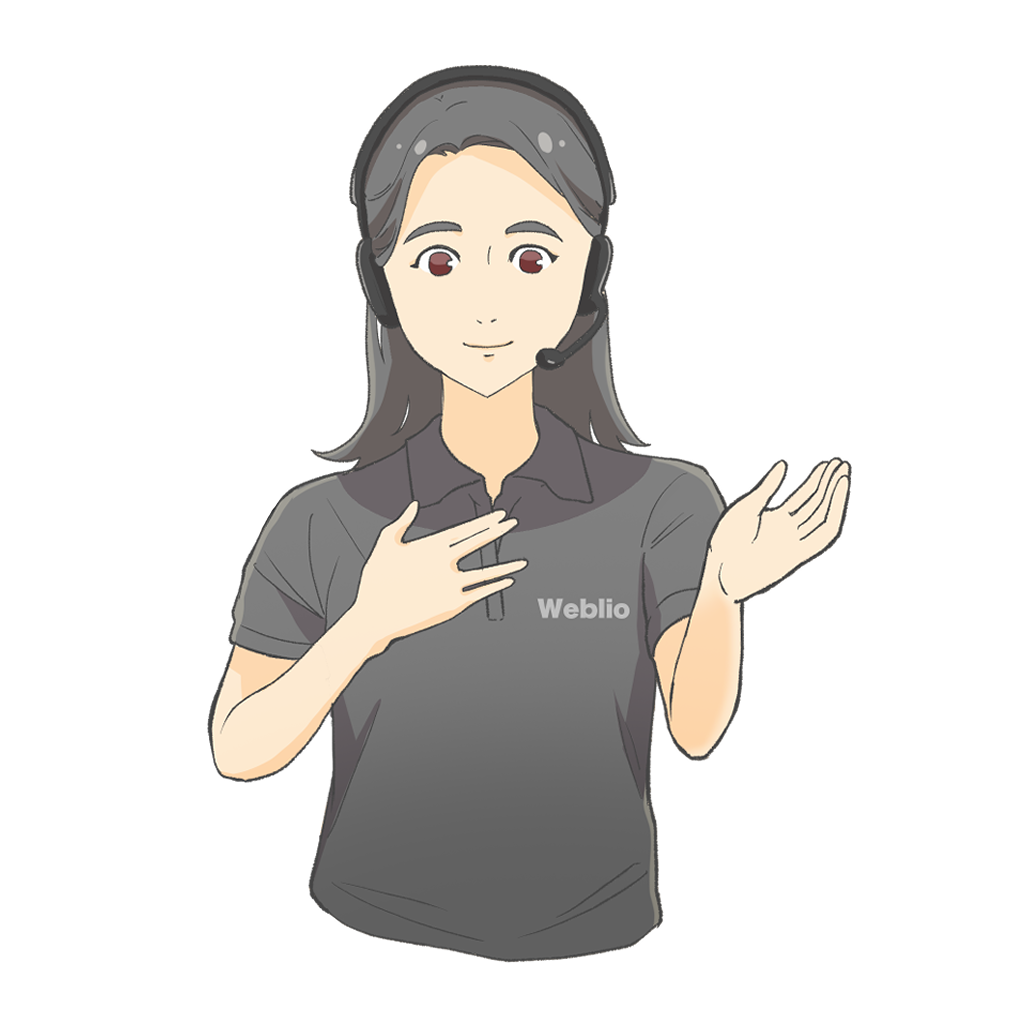
Part A_3 Introduction
Nice to meet you too, ________. What cellphone application do you usually use? Why?
Part A_4 Introduction
| Answer: |
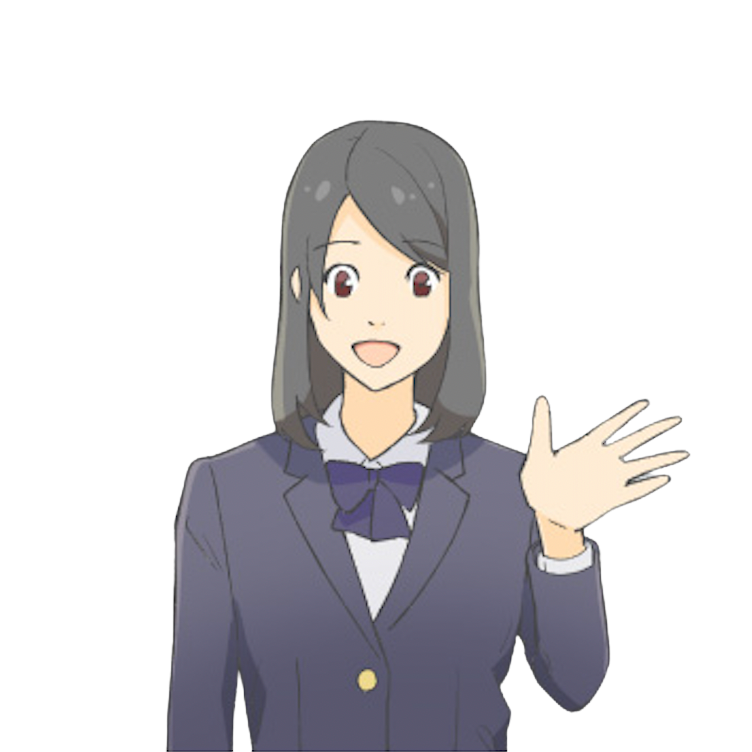

Part A_5 Introduction
________________________________. Let’s begin our lesson!
Part B Listening 1

Part B_1 Listening 1
Please listen carefully while I read the passages.
Then, choose the letter that matches the content.
Then, choose the letter that matches the content.
講師がパッセージを一度読み上げます。そのあと内容に合う文章を次のa~dから選びましょう。最後に答え合わせをします。

Part B_2 Listening 1
| a. | Artificial intelligence will replace physical jobs in the near future. |
| b. | AI advancement will affect some jobs that need brain work. |
| c. | Mental labor will be gone because robots will take over their roles. |
| d. | Two million jobs will be lost as a result of the growth of the STEM fields. |
Part B_3 Listening 1
| Answer: |


Part B_4 Listening 1
Please listen carefully while I read the short passage once. Then, choose the letter of the correct answer.
パッセージの続きを一度だけ読みます。そのあと内容に合う文章を次のa~dから選びましょう。

Part B_5 Listening 1
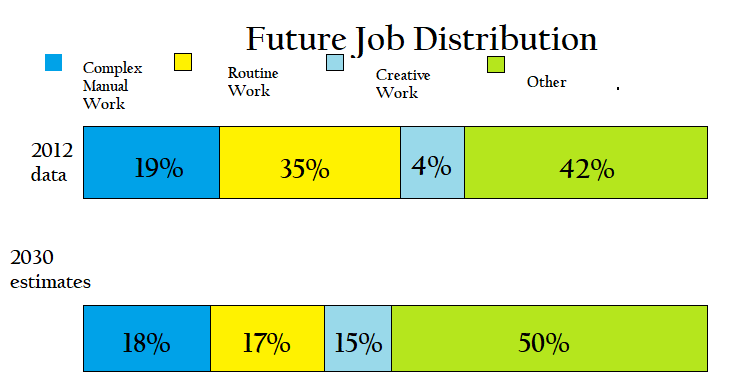
| a. | Routine work will decrease by one-third because of AI advancements. |
| b. | The biggest percentage reduction will be in mental work. |
| c. | Some occupations will be less affected by AI development. |
| d. | The increase in STEM jobs will have an impact on complex manual labor. |
Part B_6 Listening 1
| Answer: |


Part B_7 Listening 1
Now, let’s review your answers.
では、あなたの答えを復習してみましょう。
Part B_8 Listening 1

Part C Listening 2

Part C_1 Listening 2
Please read the situation below. Then, please listen carefully while I read the dialogue.
After that, please answer the following questions.
After that, please answer the following questions.
下記の状況を読んでください。その後講師が会話文を音読するので、質問に答えましょう。
Part C_2 Listening 2
Katy and Gab are talking about their plans for the weekend.


Part C_3 Listening 2
1. What is Gab’s main point?
| a. | Climbing mountains seems too dangerous. |
| b. | Exercising makes you feel pleasant and refreshed after. |
| c. | Cars or even stairs injure more people than climbing mountains. |
| d. | Climbing mountains is both mentally and physically beneficial. |
Part C_4 Listening 2
| Answer: |


Part C_5 Listening 2
2. Why is Katy not coming with Gab on Saturday?
| a. | She is going to go to the gym. |
| b. | She is going to watch a movie. |
| c. | She is not an outdoor-type person. |
| d. | She is going to visit her grandparents. |
Part C_6 Listening 2
| Answer: |


Part C_7 Listening 2
Now, let’s review your answers.
では、あなたの答えを復習してみましょう。
Part C_8 Listening 2

Part D Vocabulary

Part D_1 Vocabulary
We will read aloud the words below. Please repeat after me. I will check your pronunciation.
単語を音読します。講師に続いて読みましょう。講師は発音を確認します。
Part D_2 Vocabulary
| 1. |
separate
|
|
離す
|
|
| 2. |
unique
|
|
唯一の
|
|
| 3. |
habitat
|
|
生息地
|
|
| 4. |
upside-down
|
|
逆さまの
|
|
| 5. |
bark
|
|
樹皮
|


Part D_3 Vocabulary
Now, let’s review some words from Part D_2.
ではいくつかの単語、文章を復習してみましょう。
Part D_4 Vocabulary

Part E Reading

Part E_1 Reading
Please read aloud the whole passage below. I will check your pronunciation and intonation.
以下の文章を声に出して読んでみましょう。
(Please send the mispronounced words and phrases to your student.)
Part E_2 Reading
Upside-down world
Australia has been separated from the rest of the world for at least 45 million years. This is why Australia has one of the most unique natural habitats on the planet.
Australia’s plants and creatures are perhaps the closest thing to alien life forms you will ever see on this planet. The findings astounded the first naturalists who investigated them. There were black swans there, and several creatures were discovered laying eggs. It is an upside-down world, with many of the larger animals hopping, trees that shed their bark rather than their leaves each year, and wooden “pears.”
Australia is unlike any other country because you do not have to travel far to get a taste of its natural beauty. You will love the place much more once you understand its origins and natural rhythms.


Part E_3 Reading
Now, let’s review some words and sentences from Part E_2.
ではいくつかの単語、文章を復習してみましょう。
Part E_4 Reading

Part F Reading

Part F_1 Reading
I will ask the following questions. Please answer questions 1 to 2 based on the passage, and 3 based on your opinion.
講師が3つ質問をします。1~2はパッセージの内容に基づいて、3はあなたの意見を伺います。

Part F_2 Reading
| 1. | How many years has Australia been separated from the rest of the world? |
Part F_3 Reading
| Answer: |


Part F_4 Reading
| 2. | Why were the first naturalists astounded when they discovered the plants and creatures in Australia? |
Part F_5 Reading
| Answer: |


Part F_6 Reading
| 3. | In your opinion, what other factors contributed to the uniqueness of Australia’s creatures and plants? |
Part F_7 Reading
| Answer: |


Part F_8 Reading
Now, let’s review your answers.
では、あなたの答えを復習してみましょう。
Part F_9 Reading

Part G Making sentences

Part G_1 Making sentences
Please construct sentences using each word below.
以下の言葉を使って文章を作りましょう。
Part G_2 Making sentences
| separate | |
| unique |


Part G_3 Making sentences
Now, let’s review your answers.
では、あなたの答えを復習してみましょう。
Part G_4 Making sentences

Part H Making essay

Part H_1 Making essay
Please answer this question:
“What topic was most surprising to you?”
In your answer, explain what was most surprising and why it was surprising.
“What topic was most surprising to you?”
In your answer, explain what was most surprising and why it was surprising.
“What topic was most surprising to you?”の質問に答えましょう。なににもっとも驚いたのか、なぜ驚いたのかも教えてください。
Part H_2 Making essay
“What topic was most surprising to you?”
(Please read aloud your answer.)
答えを読み上げてください。


Part H_3 Making essay
Thank you for your presentation. You did a wonderful job. Now, let’s review your answer.
発表ありがとうございました。では、あなたの答えを復習してみましょう。その後、修正したあなたの答えを読んでみましょう。
Part H_4 Making essay

Part I Review and feedback

Part I_1 Review and feedback
Now, let us review the things that you learned in this lesson.
ではこのレッスンで学んだことを振り返りましょう。
(Please give a short feedback on how your student did on your class.)
| Grammar
文法
|
Pronunciation
発音
|
Vocabulary
単語
|
Comprehension
理解
|
|
|---|---|---|---|---|
 GOOD GOOD |
Was able to speak in complete sentences with minimal grammatical errors.
文法の誤りはほとんどなく、完全な文章で話すことができる |
Was able to pronounce most of the words clearly and correctly.
ほとんどの単語をはっきりと正しく発音することができる |
Used appropriate expressions learned in class.
習った表現を適切に使うことができる |
Was able to understand the passages and answer the questions correctly.
文章を理解し、質問に正しく答えることができる |
 FAIR |
Was able to speak in complete sentences with evident grammatical errors.
文法の誤りはあるが、完全な文章で話すことができる |
Mispronounced a few words.
発音の練習が必要な言葉がいくつかある
|
Used appropriate expressions learned in class and made a few errors in word choice.
たまにミスはあるが、習った表現を適切に使うことができる |
Had a little difficulty in understanding passages and answering questions.
文章を完全に理解するのは難しく、質問に正しく答えられないときもある |
 POOR |
Was able to speak using words only.
文章で話すのは難しく、単語だけで話すことができる |
Mispronounced most of the words.
発音の練習が必要である |
Used only a few words and expressions.
習った単語と表現を少しだけ使うことができる |
Had a hard time understanding passages and answering questions.
文章を理解するのは難しく、質問に答えるのは難しい |
Part J Free talk

Part J_1 Free talk
Let’s do a free talk about the following topics.
フリートークをしましょう。

Part J_2 Free talk
| 1. | Would you like to visit Australia someday? If yes, what do you want to do there? If no, what country do you want to visit and why? |
Part J_3 Free talk
| Answer: |


Part J_4 Free talk
| 2. | Animals that are native to a particular place are frequently endangered. Why do you think this occurred? What should we do to save them from extinction? |
Part J_5 Free talk
| Answer: |
